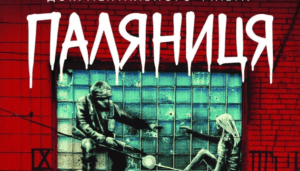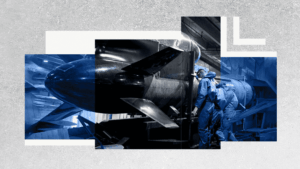While Ukraine’s defenders hold the front lines under relentless Russian attacks, and civilians are bombed far from the battlefield – the war against corruption back home has taken a dark turn.
Instead of reinforcing those who investigate and prosecute corruption, President Zelenskyy allowed legislation to pass that undermines the independence of NABU and SAPO – the very institutions tasked with holding the powerful to account.
And who truly benefits from weakening them?
Mykhailo Tkach investigates. The exposé was published by Ukrainska Pravda.
October 28, 2019. After a few months in office, President Volodymyr Zelenskyy visited the National Anti-Corruption Bureau (NABU) to speak to the detectives:
“The main reason I came here with my colleagues is to charge you with this energy, so that you understand: we will not and do not want to interfere with your work. But as people who represent society — and I, as an elected president — very much want you to know that your hands are not tied. Please, we truly want all top-level corrupt officials to receive the sentences they deserve. Because society will never forgive us if they don’t.”
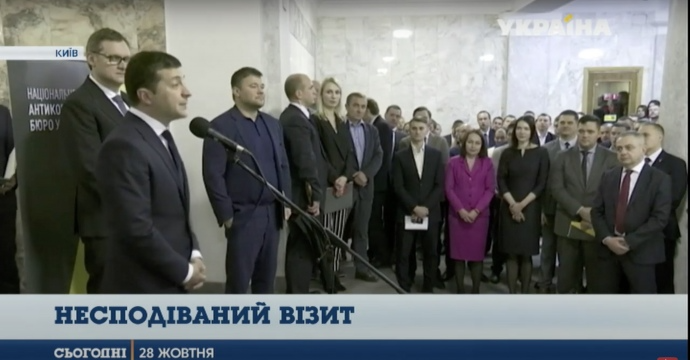
July 22, 2025. In his sixth year in office, President Zelenskyy makes the decision to strip the National Anti-Corruption Bureau (NABU) and the Specialized Anti-Corruption Prosecutor’s Office (SAPO) of their independence, placing them under the control of the Prosecutor General — an official appointed by the president with the approval of the Verkhovna Rada.
Servant of the People has long ceased to be a parliamentary majority, so for this decision — as well as for the appointment of a new Cabinet — MPs from the president’s faction vote in coalition with pro-Russian deputies from the Opposition Platform – For Life (OPZZh).
At what point did we take a wrong turn? What pushed the president to dismantle Ukraine’s independent anti-corruption institutions? And how does this decision connect to the fact that the top-level corrupt officials Zelenskyy once vowed to imprison may now turn out to be his own friends?
“Chernyshov”. Bringing NABU and SAPO into the President’s inner circle
Just a month before the dramatic move to dismantle the independence of Ukraine’s anti-corruption institutions, President Zelenskyy was forced to intervene to protect a close family friend — who also happened to be Deputy Prime Minister and Minister for Unity — Oleksiy Chernyshov, from charges filed by NABU and SAPO.
Chernyshov stands accused of abuse of office and receiving unlawful benefits on a particularly large scale.
In June, Ukrainska Pravda reported on Chernyshov’s attempted escape. Multiple sources within law enforcement and the president’s inner circle told UP that at Zelenskyy’s request, Ukraine’s Main Intelligence Directorate (HUR) had to handle the issue of bringing the Deputy PM back from abroad. This followed Chernyshov’s blunt refusal to return voluntarily -he reportedly said: “I don’t see my future in Ukraine.”
On the Ukrainian side of the border, Chernyshov was met by officers from another security agency – the SBU, accompanied by members of military intelligence. Both security services were tasked with guaranteeing the minister that he would not be arrested by NABU detectives or SAPO prosecutors upon entry into Ukraine, and that he would not end up in pre-trial detention.
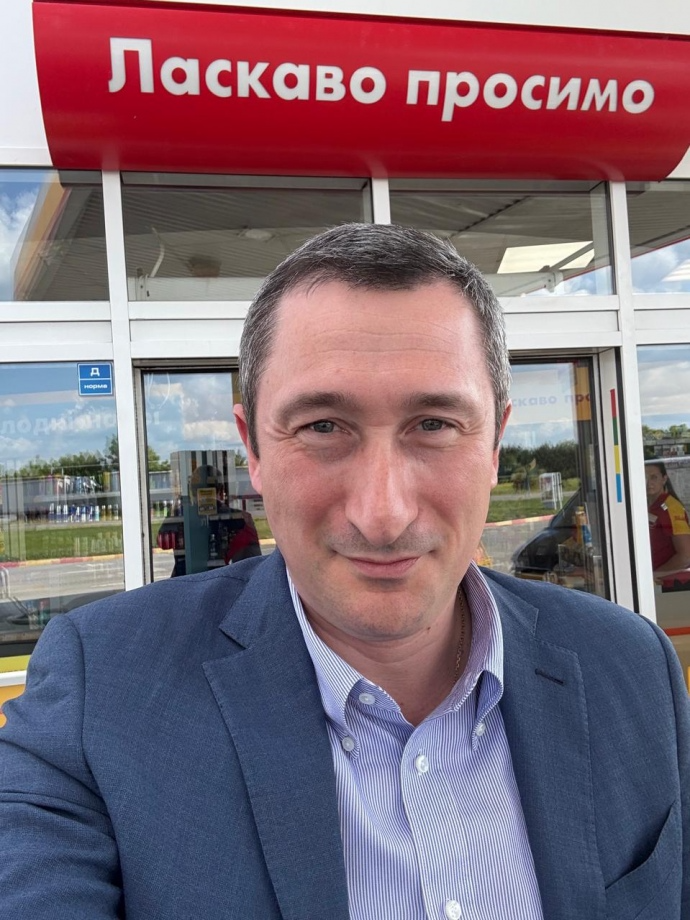
An obvious sign that the president not only failed to support NABU and SAPO in the Chernyshov case but actively obstructed law enforcement appeared during the court hearing to determine the deputy prime minister’s preventive measure. After Chernyshov was formally suspected of corruption, he was not simply kept in office – quite the opposite. A letter from then-Prime Minister Denys Shmyhal (who was fully dependent on the president) was submitted to the court to argue the importance of Chernyshov remaining in his high-ranking position.
However, exactly two weeks after this hearing, the minister was still dismissed, and the Ministry for Unity was liquidated during the government reshuffle.
This suggests either that the president wanted to publicly demonstrate that no suspicions from NABU and SAPO could influence his decisions, or that in those two weeks Chernyshov completed all the important work regarding Ukrainian unity, making his position no longer necessary.

The active phase of the behind-the-scenes confrontation between the president and the anti-corruption bloc began precisely with the Chernyshov case. Everything that happened before that can be described as minor misunderstandings, attempts to control independent bodies by influencing certain officials, or sabotage of their work through other law enforcement agencies.
The Chernyshov case demonstrated not only to the public but also to the authorities themselves how powerless the entire seemingly all-encompassing power vertical can become when NABU detectives and SAPO prosecutors reach one of its members.
(We will tell the story of the pressure Ukrainska Pravda faced after starting work on the Chernyshov material in a separate publication.)
Political danger is something President Zelenskyy cannot afford – neither if the war with Russia continues, nor if it ends and he needs to quickly run for a second term.
Corruption cases against the president’s closest circle can obviously cause his trust ratings to plummet rapidly — as had already happened with the previous head of state, Petro Poroshenko.
According to sources from Ukrainska Pravda within law enforcement agencies, at the height of the scandal surrounding the Chernyshov case, a series of meetings took place at the President’s Office involving heads of law enforcement agencies controlled by the authorities.
In particular, accusations were made by the state leadership against law enforcement officials for failing to gather compromising material on the anti-corruption bodies. Following this, the State Bureau of Investigation (DBR) launched actions related to car accidents involving NABU employees, which they suddenly decided to carry out on the same day as SBU operations aimed at eliminating Russian influence on certain anti-corruption officers – despite one of the accidents having occurred as far back as 2021.
Our sources report that the heads of law enforcement agencies loyal to the President’s Office were tasked with doing everything possible to destroy the influence of NABU and SAPO.
Shurma: The “First” of President Zelenskyy’s 5–6 key managers
On December 19, 2023, the author of this piece asked President Zelenskyy at his year-end press conference about members of his team:
“We understand that the war is ongoing and that, unfortunately, we could still lose if certain deputies, officials, or bureaucrats continue to use their power for personal gain rather than for the public good. So I want to ask you: what do you think you, as president, can and should do — or who should you replace in your team — to make our country stronger?”

In response, the now well-known meme about the “5–6 managers” was born:
“As for my team – if I get rid of my team, which is small, just 5–6 managers, then we all become weaker.”
This exchange took place at the press conference five months after the release of a high-profile investigation by the editorial team at Bigus.Info about one of those very 5–6 managers – Rostyslav Shurma, Zelenskyy’s Office curator responsible for the entire country’s economy. The investigation revealed how the state was paying solar power plants owned by Shurma’s brother for electricity generated under occupation.
“Solar power plants located in Russian-occupied territory, co-owned by close associates of Deputy Head of the President’s Office Rostyslav Shurma, continued receiving payments under the ‘green tariff’ until summer 2023 despite likely being disconnected from Ukraine’s unified power grid.”
“After Russia’s full-scale invasion of Ukraine, dozens of ‘green’ energy plants ended up under occupation. Among them were solar plants operated by KD Energy 2 LLC, Natsprod PE, Vidnovlyuvana Enerhiya Zaporizhzhya LLC, Green Energy Tokmak LLC, and Grandpower LLC, all located in Zaporizhzhia region.”
From July 2022 to July 2023, these companies collectively received over 320 million hryvnias in payments for electricity under the “green tariff” from the state enterprise “Guaranteed Buyer.” It was noted that the co-owner of two of these companies was Oleg Shurma, brother of the President’s Office official Rostyslav Shurma.
Just one month after the journalists’ publication, it became known that NABU was investigating state payments to the occupied solar plants connected to Shurma’s circle. However, these facts did not affect the president’s staffing decisions in any way. Even after May 2024, when NABU conducted searches in this case, Shurma continued to serve as Deputy Head of the President’s Office until September of that year.

According to sources from Ukrainska Pravda in political and business circles, representatives of the U.S. State Department seriously began considering imposing sanctions on Shurma in 2024 due to his excessive influence over the country’s entire economy. It was only because of this pressure that Shurma requested to resign. According to UP’s political sources, the president viewed his economic manager as a victim of American political persecution.
The president was never able to find a new “Shurma.” Although some of his duties are currently performed by Presidential Office advisor and banker Yuriy Kantsion, Shurma remains a member of the supervisory board representing the state at the oil and gas giant NJSC Naftogaz of Ukraine. Even being 1700 kilometers away from Kyiv, he continues to participate in board meetings online.
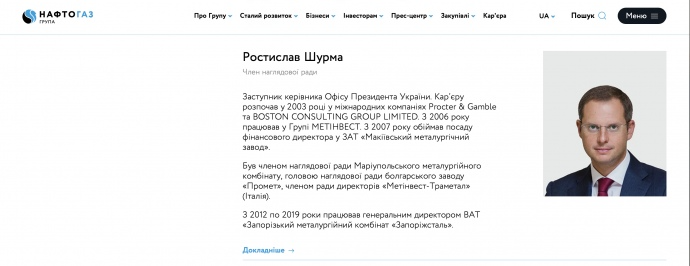
After his resignation, Shurma — a father of three minor children — left Ukraine and went to Germany, where his family had been living since the beginning of the full-scale invasion.
His brother, Oleg Shurma, also left the country after the birth of his third child. He is also involved in the aforementioned NABU and SAP investigation.
According to Ukrainska Pravda sources in law enforcement, neither brother has returned to Ukraine. However, Rostyslav, according to Ukrainska Pravda sources, attended a Ukrainian reconstruction conference in Rome on July 10–11.
Shurma’s name seemed to fade from public memory in Ukraine. However, according to UP sources among Members of Parliament, on the morning of July 15, Shurma called a high-ranking official in the President’s Office to inform him that NABU detectives, together with German law enforcement, had conducted a search at his residence in a Munich suburb and confiscated his phone.
This happened almost immediately after the scandal around the highest-ranking member of the Cabinet of Ministers, whom NABU and SAP had “suspected” of corruption — the very same Chernyshov — had begun to die down.
According to Ukrainska Pravda, the searches at Shurma’s residence became one of the final straws for the president, who a week later would publicly accuse NABU and SAP of “inefficiency” and sign a law significantly restricting the independence of these agencies.
The President’s Office is concerned that German law enforcement officers were involved in the investigative actions at Shurma’s home. As is known, German authorities do not agree to such measures without a thorough verification of all proper legal grounds. Given that the suspects are abroad, the case is taking on an international dimension. And while Ukrainian detectives and prosecutors can be discredited or controlled through Parliament and the Prosecutor General, German authorities cannot.
Mindich. One step away from the President
Another name increasingly mentioned in the media is Timur Mindich, co-owner of the “Kvartal-95” studio and one of President Zelenskyy’s closest friends. Mindich is usually brought up in connection with the energy sector of state administration and even drone production.
Sources close to Mindich told Ukrainska Pravda that he is the person with whom the president liked to relax and “talk about life” even before the full-scale invasion.
In 2021, the author of this piece managed to document President Zelenskyy’s birthday celebration at Mindich’s apartment in the company of the “Kvartal” team, despite quarantine restrictions (if you forgot, there was a coronavirus pandemic – for example, in the UK, Boris Johnson suffered consequences for a similar pandemic-era party).
Interestingly, the only representative of the Cabinet of Ministers at that event was Oleksiy Chernyshov.
“I celebrated my birthday in my apartment, which is located at 9-a Hrushevskyi Street. Mr. Mindich’s apartment is in the same building. Mr. Mindich is the commercial director of the ‘Kvartal-95’ studio and held this position before my presidency. Mr. Mindich has excellent working and warm relationships with the actors and writers of the ‘Kvartal-95’ studio. The ‘Kvartal-95’ studio, together with Mr. Mindich, knowing that I would be home in my apartment on my birthday, surprised me by inviting me to this apartment. I went up a few floors and entered. Yes, it was a great surprise,” the president said that same year, responding to a question from the author of this material.

A year earlier, in 2020, the author of this material managed to document three secret visits by Mindich to the Office of the President.

“I came there to help and offer my assistance as a person, as a friend, and as a citizen in connection with the coronavirus. I have experience organizing the delivery of packages, food, and so on,”
– Mindich replied then when asked about his visits.
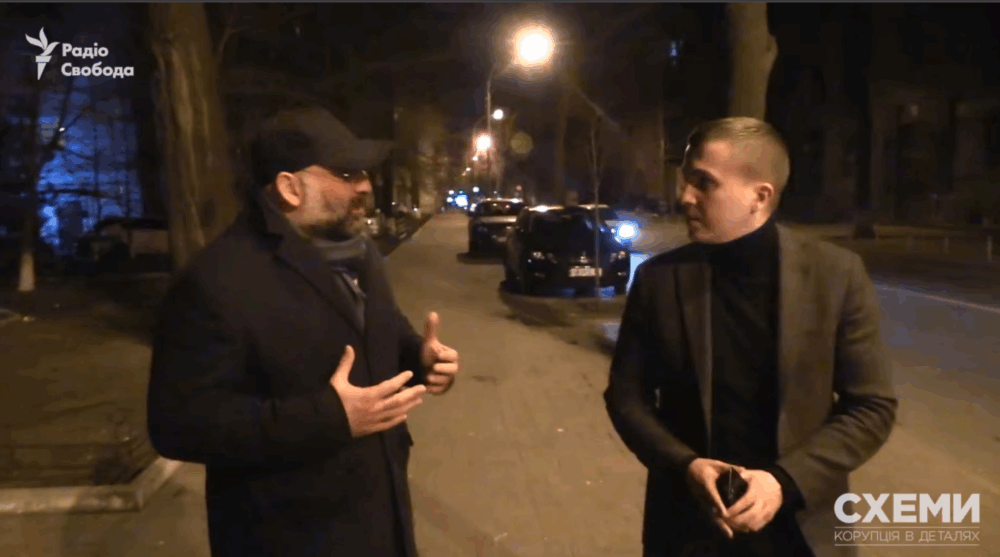
After Russia’s invasion in 2022, Mindich not only remained within the president’s close circle but, according to Ukrainska Pravda’s sources, gained even greater status.
Close relationships, according to sources in political and business circles, often allow Mindich to personally appeal to the president with requests. Such requests reportedly include influencing appointments and overseeing certain state affairs, without Mindich holding any official position related to these matters.
In early June this year, NABU detained a relative of Mindich while attempting to flee Ukraine. He is accused of embezzlement in tenders for Kharkivoblenergo worth 664 million hryvnias.
In recent months, Mindich’s name has frequently appeared in connection with drone production — a nearly unlimited market, as funding now comes not only from Ukrainian sources but also from international partners.
This week, Ukrainska Pravda, citing a well-placed source in the anti-corruption agencies, reported that NABU and SAP are preparing charges against Mindich. The same source linked the president’s recent intensified crackdown on anti-corruption bodies—which sparked street protests at the start of the week — to this development: “We think they acted preventively because they learned that NABU is preparing charges against Timur Mindich.”
According to Ukrainska Pravda’s business circle sources, NABU and SAP officers even managed to document Mindich in the very apartment where, five years ago, the president’s birthday celebration took place. Some interlocutors insist the recordings might include the president himself.
However, law enforcement agencies have not provided any information regarding these recordings, so it remains unclear whether Mindich’s conversations involve corrupt dealings.
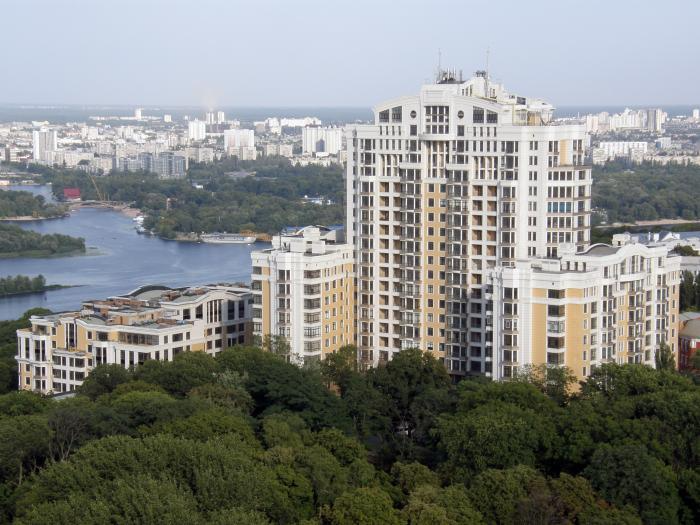
If the fight against NABU and SAP at the highest level doesn’t stop law enforcement from seeing these cases through, and if Mindich actually receives an official corruption charge, this would set a precedent – the closest person to President Zelenskyy would be accused not just of corruption, but corruption during a major war and at the expense of that war.
As one NABU officer said after the SBU raid: “At night, the Russians strike. During the day – our own.”
The SBU and DBR operations began this Monday right after a prolonged air attack by the aggressor country on Ukraine.
It’s no secret that both agencies have been under enormous pressure since their creation, as most suspects are either high-ranking officials or influential figures. However, this is the first time that force was used against some employees during raids, despite no resistance.
Moreover, during a briefing on Tuesday, NABU director Semen Kryvonos stated that medical institutions, where the injured employees sought treatment to document their injuries, refused to admit them. According to Kryvonos’s operational information, representatives of the authorities had previously “worked” with these medical facilities.
Although sources from law enforcement agencies cited by “Ukrainska Pravda” acknowledge that, in particular, the SBU had grounds to respond to illegal activities of certain NABU employees, neither these facts nor other public accusations seem sufficient to justify the dismantling of the independent anti-corruption system — especially amid applause from deputies of the president’s faction.
A far greater “offense” of NABU and SAP might be their attempt to hold top officials from the president’s inner circle accountable.
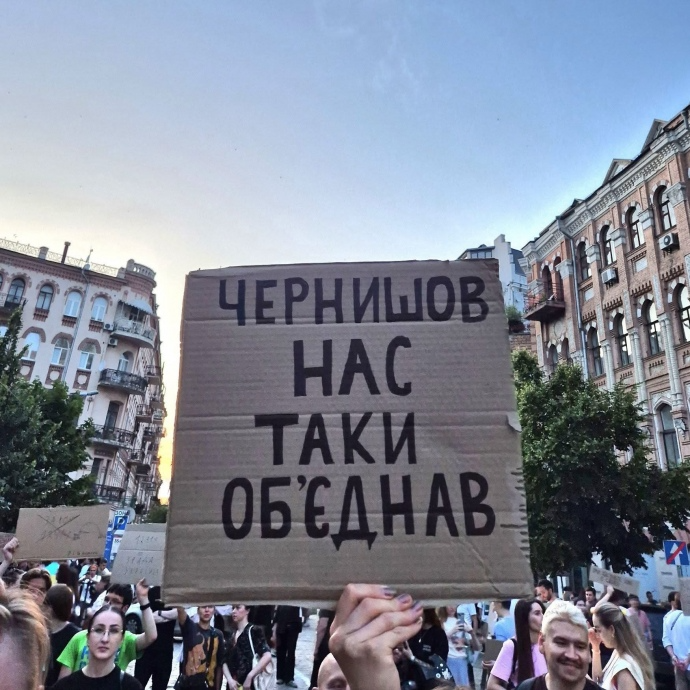
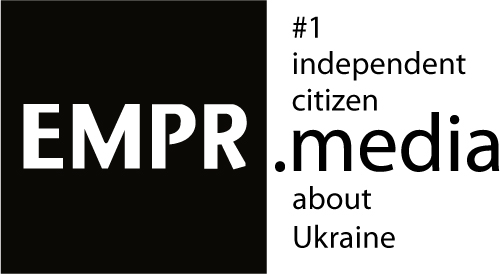
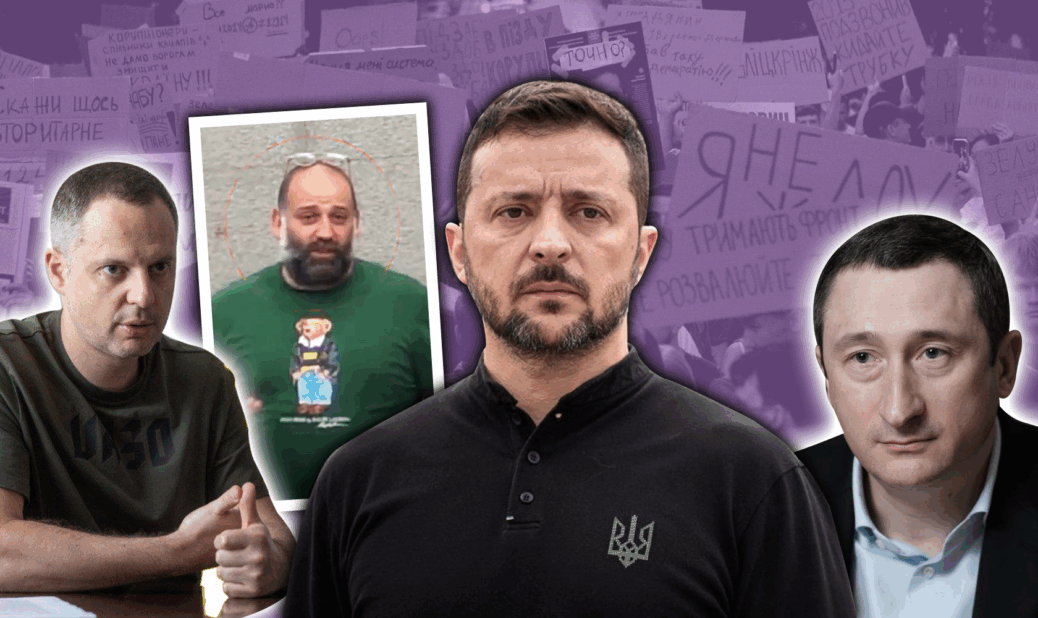

![The Kyiv Instytutska Street massacre during the Maidan Revolution of Dignity, where Berkut’s “Black Company” shot and killed unarmed protesters. :contentReference[oaicite:2]{index=2}](https://empr.media/wp-content/uploads/2026/02/photo-1-480x270.png)
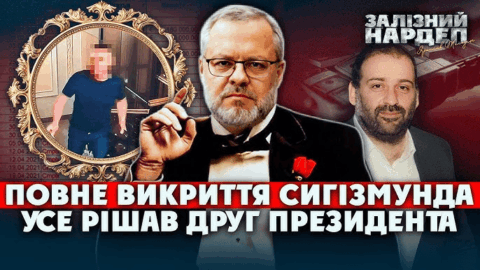
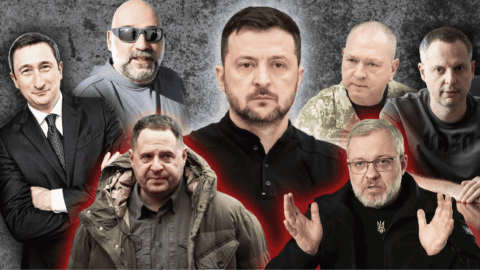
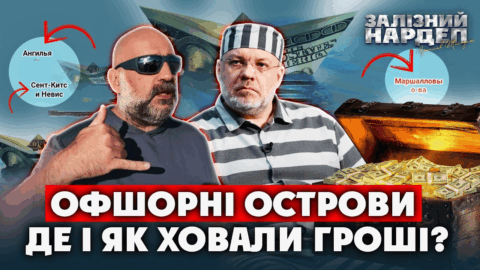
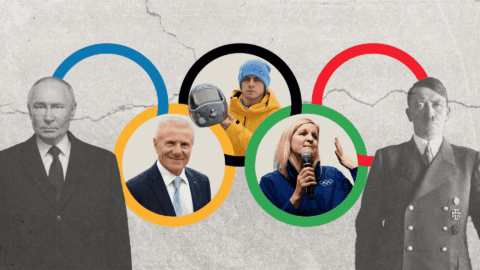
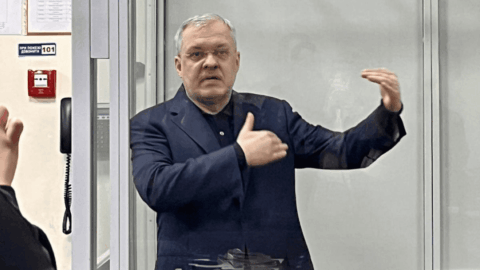

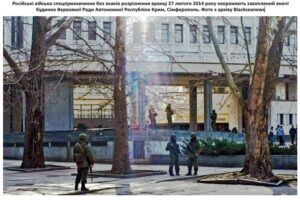
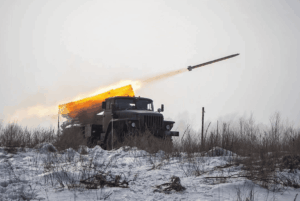
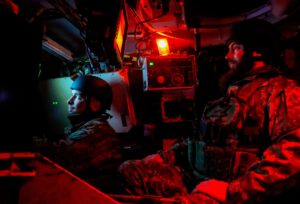
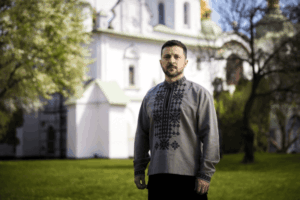
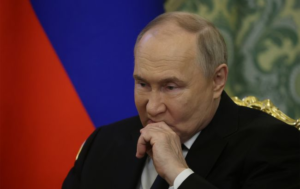
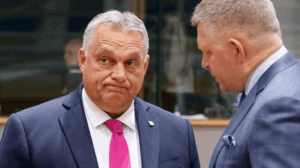
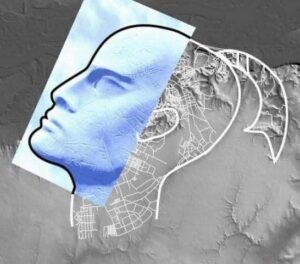
![Contemporary Ukrainian war art installation and mixed-media pieces reflecting displacement, trauma, memory and resilience on the fourth invasion anniversary. :contentReference[oaicite:2]{index=2}](https://empr.media/wp-content/uploads/2026/02/art-300x169.png)
